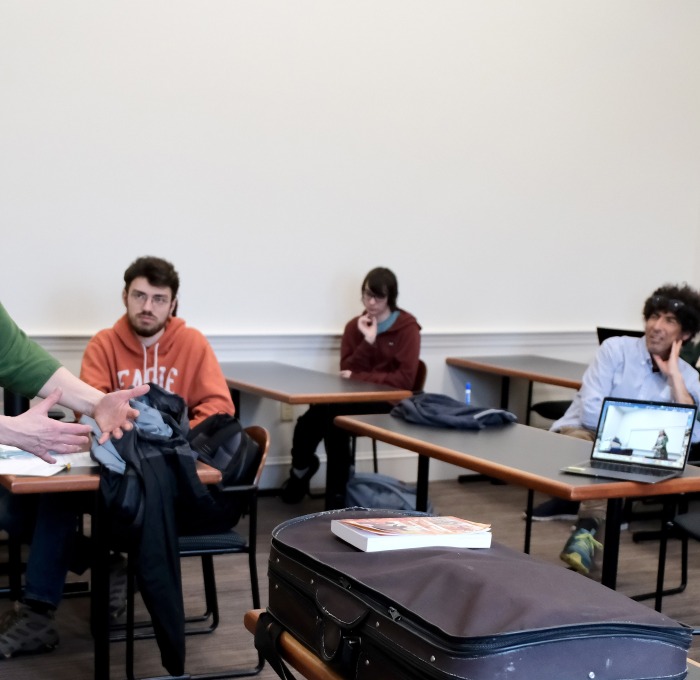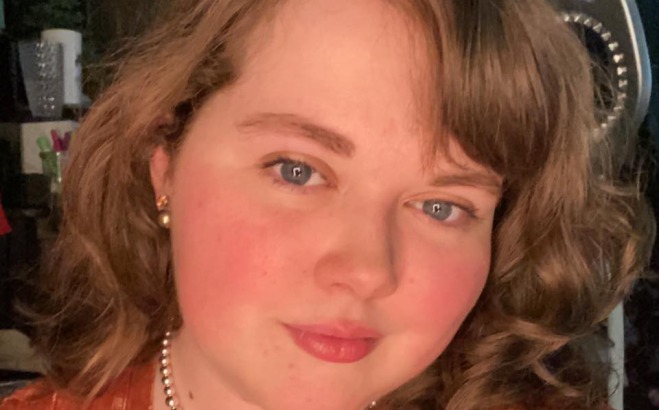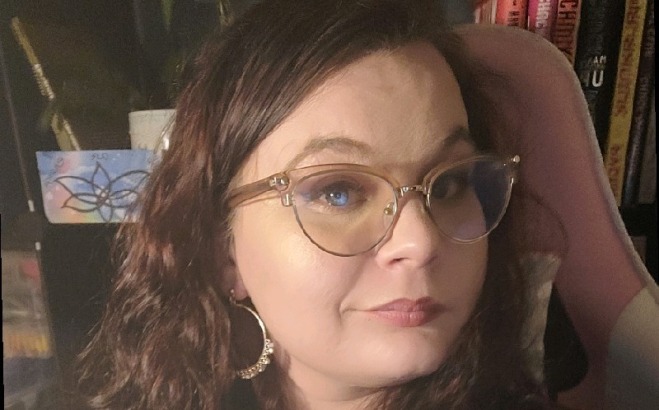
In Short
As you read, analyze, discuss, and write about fiction, poetry, essays, and memoirs, you'll become a critical thinker with sharpened writing and verbal skills.
“English and the humanities are not really about edification or seeing how resplendent the human spirit is, although that's certainly part of it. It's learning to be an effective citizen in dealing with information, with narratives; learning how to recognize when they're true and when they're false, learning how to compare them with other narratives of the same sort, and to make a decision about them.” Professor Mark Christian Thompson, Johns Hopkins University
Program Overview
Literature concentrators learn to think critically, hone close reading and research skills, and write intelligently about literature. Our students attain valuable analytical and writing skills, becoming accomplished professionals, teachers, and engaged global citizens. Intimate seminar-style classes enable students to develop their own insights and interpretations while mentored by faculty.
Because the abilities and knowledge gained as an English major have such broad applications, career choices after graduation are almost unlimited. English majors at Fitchburg State University have continued their studies in graduate programs in literature, education, creative writing, library science, and counseling, and several have been accepted to law school programs.
For more information about the English Studies department, its faculty, and the many opportunities we offer our students, visit the English Studies Department
Our Students and Graduates

Kaitlin Chase ’19, graduate student at Boston College

Tamara Verhyen ’16, Customer Success Specialist at SimplePractice
Curriculum and Other Information
- BA, Literature Concentration, English Studies - Program information from the University Catalog.
- BS, Literature Concentration, English Studies - Program information from the University Catalog.
- Four-Year Plans of Study - Required and elective courses for program completion.
Literature Concentration Learning Outcomes:
- Students will be able to closely read and interpret diverse texts.
- Students will be able to exchange critical viewpoints about literary and cultural topics.
- Students will be able to produce scholarly work that include critical readings and the use and citation of scholarly sources.
- Students will demonstrate knowledge about the scope, genres, and historical and critical contexts of literature.
- “Why the Liberal Arts are Necessary for Long-Term Success” in Inc. 2018
- “How Can a Liberal Arts Degree Lead to Financial Success?” in Forbes 2019
- “10 CEOs Who Prove Your Liberal Arts Degree Isn’t Worthless” in Time Magazine 2019
- “Why ‘worthless’ humanities degrees may set you up for life” in BBC Worklife 2019
- “English Majors, listen up! Here’s How to Make the Most of Your Degree” in Pearson Accelerated Pathways blog 2020
- “What Can You Do with an English Literature Degree” in QS 2021
- “Why we still need to study the humanities in a STEM world” in The Washington Post 2017
- “The humanities may seem pointless, but that is the point” in America 2019
- “Study English Lit to acquire ‘marketable’ skills? That’s a bad argument” in the Los Angeles Times 2017
- “People said majoring in English was a waste of time and money – but here are 5 ways I use it in my everyday life” in Business Insider 2019